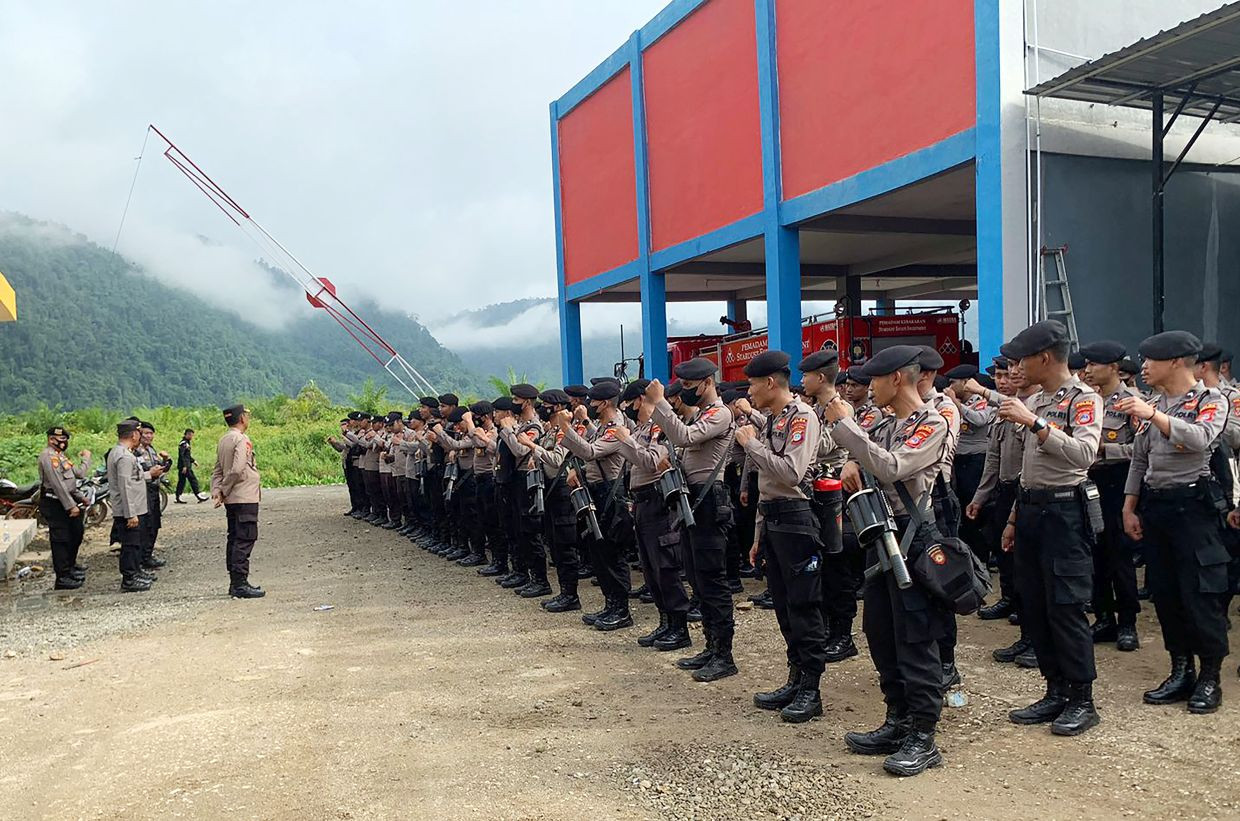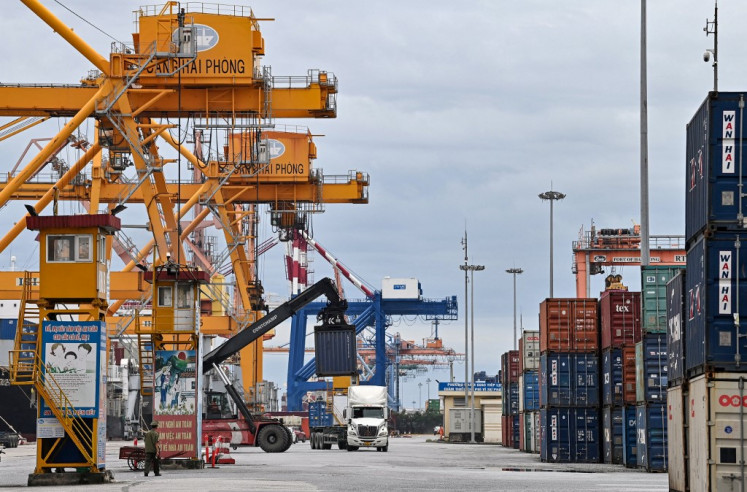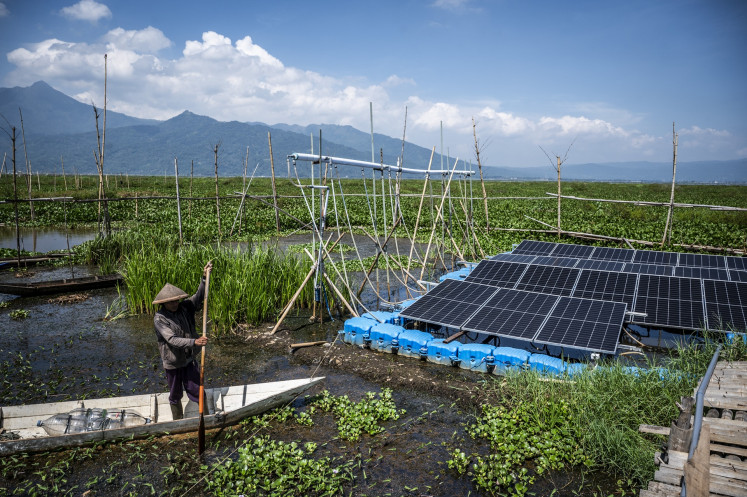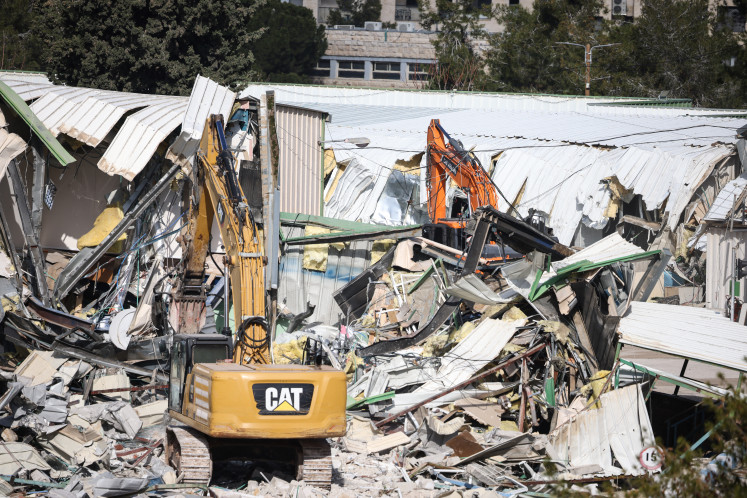Popular Reads
Top Results
Can't find what you're looking for?
View all search resultsPopular Reads
Top Results
Can't find what you're looking for?
View all search resultsEasy to blame China for the deadly riots at Morowali nickel plant
For Indonesia, the Morowali tragedy should serve as an example to educate the public about China because, like it or not, there is strong suspicion and distrust in China investment.
Change text size
Gift Premium Articles
to Anyone
The negative public reaction, at least on social media platforms, to the deadly riots which occurred at China’s nickel plant PT Nickel Gunbuster Industry (GNI) in Morowali, Central Sulawesi, on Saturday, is a strong reminder of how sensitive and fragile are the relations between Indonesia and China at the grassroots level.
Many people here have blamed the Chinese company for its refusal to accommodate Indonesian workers’ demands, but we have hardly heard about the company’s version of the situation except from an official press release. Labor union leaders were quick to scapegoat the company as if the workers are always right and therefore all their aspirations must be heard and fulfilled.
The labor activists should remember that while Indonesian workers must be protected, they are not the only element in the economy. The company deserves protection too according to the law.
The local governments in Central Sulawesi opted to play it safe by accusing unidentified people of provoking the labor protest in Morowali. Everybody seems to evade responsibility and shift the blame to the mining company.
The nickel smelter is owned by China’s Jiangsu Delong Nickel Industry. An Indonesian and a Chinese worker were killed in the riots that involved workers from both sides and security guards. The company said in a written statement on Monday that it was working with the police in investigating the incident.
GNI began the smelter operation in late 2021 with an annual output of 1.8 million tonnes per year. The total investment is about US$2.7 billion. It hires about 11,000 Indonesian workers and 1,300 Chinese nationals.
The Chinese embassy has condemned the violence. “We, as the Indonesian government did, condemn this vile incident, during which the violent breaking into the industrial park caused casualties of Chinese and Indonesian staff and damage of facilities in the park,” the embassy said in a statement.
If there is a lesson both Indonesia and China can learn from this tragedy, it is that the government should no longer focus on the profits from Chinese investment, while the Chinese people need to pay more attention to be able to see problems from the perspective of the local people or culture.
China is the world’s second-largest economy, but mentally and culturally it maintains the mindset of a developing country. The country is the most-important trading partner for nearly all nations across the globe, including the United States, the European Union and ASEAN. The Chinese government and companies however are still learning the ropes to become a global player.
For Indonesia, the Morowali tragedy should serve as an example to educate the public about China because, like it or not, there is strong suspicion and distrust toward China, no matter what its good intentions are. It is not an easy job, but Indonesia will be the big loser if China stops investment simply because we fail to readjust our perception of and attitude toward China.
For China, Indonesia, no matter how important and strategic it is in the world landscape, is just a part of China’s global strategy. A few years ago, some Indonesian people were angry with me when I wrote in a column that China is much more important for Indonesia than the other way around.
The fact is the distrust in, if not antipathy against, China is still there among many Indonesian people. Oftentimes the attitude has no reason except suspicion or even hatred.
After the aborted coup blamed on the Indonesian Communist Party (PKI) in 1965, Indonesia severed diplomatic ties with China, accusing Beijing of involvement in the putsch. The relationship was restored 25 years later on Aug. 8, 1990, after premier Li Peng assured then-president Soeharto that China would not interfere in Indonesia’s domestic affairs.
In the case of China’s massive investment in the nickel industry and other sectors in Indonesia, public suspicion has been rife from the beginning. But the government has always tried to play down this phenomenon. It opted to overemphasize the great impacts of the investment on Indonesia’s economy, especially the country’s vision to become the key player in global battery production for electric vehicles (EVs).
The Morowali tragedy is likely just the tip of the iceberg because, from the outset, there were people who believed that investment in the nickel industry was part of China’s attempt to control Indonesia’s economy and the government’s submission was for the sake of economic growth.
Those people do not realize, let alone care, that nickel processing and smelting requires not only huge investment and high technology but also market certainty.
In the social media, such accusations come from prominent scholars, including economists. They say tens of thousands of Chinese people are invading Indonesia, including Morowali, and seizing the jobs from local workforce.
Unfortunately, President Joko “Jokowi” Widodo and his ministers have tended to play down the negative sentiment and instead focus on efforts to boost government-to-government relations. Everybody knows the personal bond between the President Jokowi and Chinese President Xi Jinping is strong today.
While in the elite level ties between the two countries are excellent, it is not the case in the people-to-people relationship as evident in the public responses to the Morowali riots.
I am afraid that the incident was not just caused by misunderstanding between Indonesian and Chinese workers or management. The two governments should have a strong political will to find the root causes of the riots. The solution does not depend solely on the police or security apparatus, but also on mutual trust at the grassroots level.
Cabinet members, including Coordinating Political, Law and Security Minister Mahfud MD, Manpower Minister Ida Fauziyah and Industry Minister Agus Gumiwang Kartasasmita, have promised to take all necessary measures to prevent such incidents from recurring.
It is very easy to blame the Chinese company for the fatal riots. We Indonesians tend to forget that we may be part of the problem too.
We must ensure no more violence will erupt again in Morowali and elsewhere in the country, for the benefit of both Indonesia and China, as well as all related parties.
***
The writer is a senior editor at The Jakarta Post.











